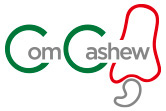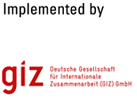News

ComCashew
Empowering Agricultural Policy in Africa
From Tuesday, July 22, to Friday, July 25, 2025, an AgriPolicy Toolkit training session was held in Sogakope, located in the Volta Region of Ghana. This training was designed to equip participants with the skills and knowledge necessary for effective policy formulation and implementation, with a focus on strengthening policy decisions and their impact on the rice and cashew sectors. The AgriPolicy Toolkit includes over 150 practical policy instruments for evidence-based policymaking.
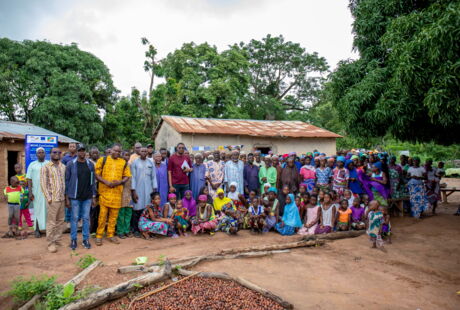
Empowering Cashew growing Communities in Togo and Benin through Value Addition and Certification via the Matching Grant Fund
Imagine a world where the food we eat not only nourishes us but also builds stronger communities and a healthier planet. In Togo and Benin, this vision is taking root within the cashew industry, transforming lives and landscapes
From July 2nd to July 11th, 2025, a field mission took place across Togo and Benin. The mission was under the GIZ Matching Grant Fund (MGF) program and its main goal was to see how efforts to make cashew industry more sustainable are making a real difference. We focussed on key areas like organic and Rainforest Alliance (RA) certification, boasting women’s empowerment through new product ideas and strengthening farmer groups.
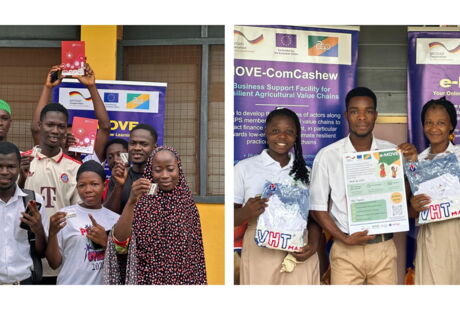
Strengthening Agricultural Education: Highlights from the First e-MOVE Campus Tour in Ghana
Supporting a Growing Cashew Sector with Online Learning
The cashew sector continues to expand and evolve globally. In Ghana, the sector is gaining momentum as a priority area for rural employment, agribusiness development, and export diversification. As the country seeks to move beyond raw nut exports to local processing and commercial growth, the need for capacity building for actors in the cashew value chain has become paramount.

International cashew research conference 2025
CALL FOR ABSTRACTS/PAPERS
Date
From Tuesday, September 23 to Thursday, September 25, 2025
Location
Abidjan (Côte d'Ivoire)
Background and justification
From 2000 to 2018, the cashew raw nuts global trade more than doubled, and Africa has become the world's leading producer (>60%). Worldwide, the cashew nut market is experiencing annual growth of 7 to 10%, driven by increasing consumer demand and the recognized nutritional benefits of the nut. Despite its social and economic importance, in most of the main nut-producing countries,
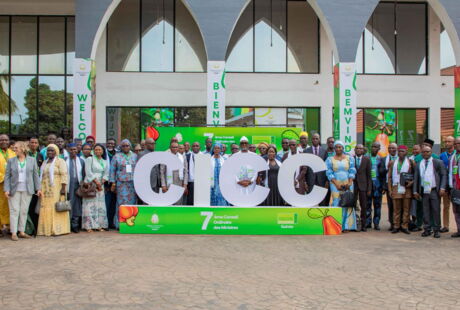
A Roadmap for a Resilient Cashew Sector: GIZ/MOVE-ComCashew at the 7th CICC Session in Guinea
On April 24 – April 26, 2025, the 7th Ordinary Session of the Consultative International Cashew Council (CICC) convened in Conakry, Guinea took place, marking a significant milestone for the African cashew industry. Under the leadership of Ghana’s Minister of Trade, Agribusiness, and Industry, Elizabeth Ofosu-Adjare, ministers of agriculture and trade and their representatives from twelve cashew-producing nations participated in high-level discussions aimed at advancing the sector.
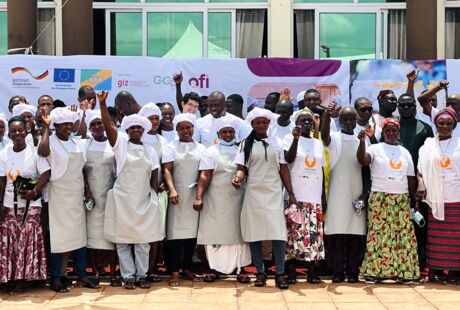
ofi partnering with GIZ/MOVE-ComCashew launched Cashew Apple Processing Project to Empower 1000 Women and Youth in Techiman.
Olam Food Ingredients Ghana Limited (ofi), one of the leading ingredients companies in the country and exporter of cocoa and cashew, has partnered with the GIZ project Market Oriented Value Chain for Jobs and Growth in the ECOWAS Region (GIZ/MOVE-ComCashew) to officially launch the 'Cashew Apple as a Recipe for Women and Youth Empowerment' Matching Grant Fund project in Techiman."

Unlocking the Potential of Cashew Apples: Partner Training
The cashew apple, a nutrient-rich product of the cashew tree, holds immense potential for economic growth and improved nutrition in Nigeria. However, a substantial portion of these apples is wasted due to post-harvest losses and underutilization. To address this challenge and unlock the value of cashew apples, a training program was organized to enhance value addition, increase utilization, and stimulate demand for cashew apple products in Nigeria.
Read more … Unlocking the Potential of Cashew Apples: Partner Training
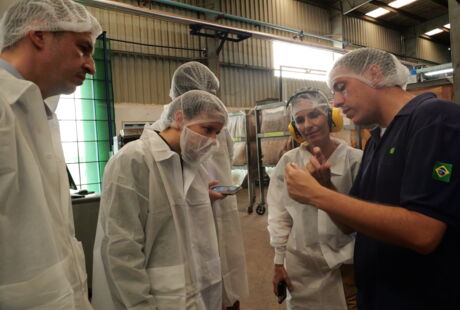
ComCashew
EU Delegation Explores Opportunities in Ghana's Cashew and Cocoa Industries with a visit to USIBRAS Ghana Limited, the largest cashew processing facility in Ghana
A team from the European Union Delegation visited USIBRAS Ghana Limited, the largest cashew processing facility in Ghana.

ComCashew
Call for Mentees in the Global Cashew Sector: CasheWomen Mentorship Initiative
Are you a woman working in the global cashew industry? Are you looking to elevate your career and gain invaluable insights from seasoned professionals in the sector? We are thrilled to announce a unique opportunity for women in the cashew industry to be mentored by successful women leaders within the sector.
Read more … Call for Mentees in the Global Cashew Sector: CasheWomen Mentorship Initiative
